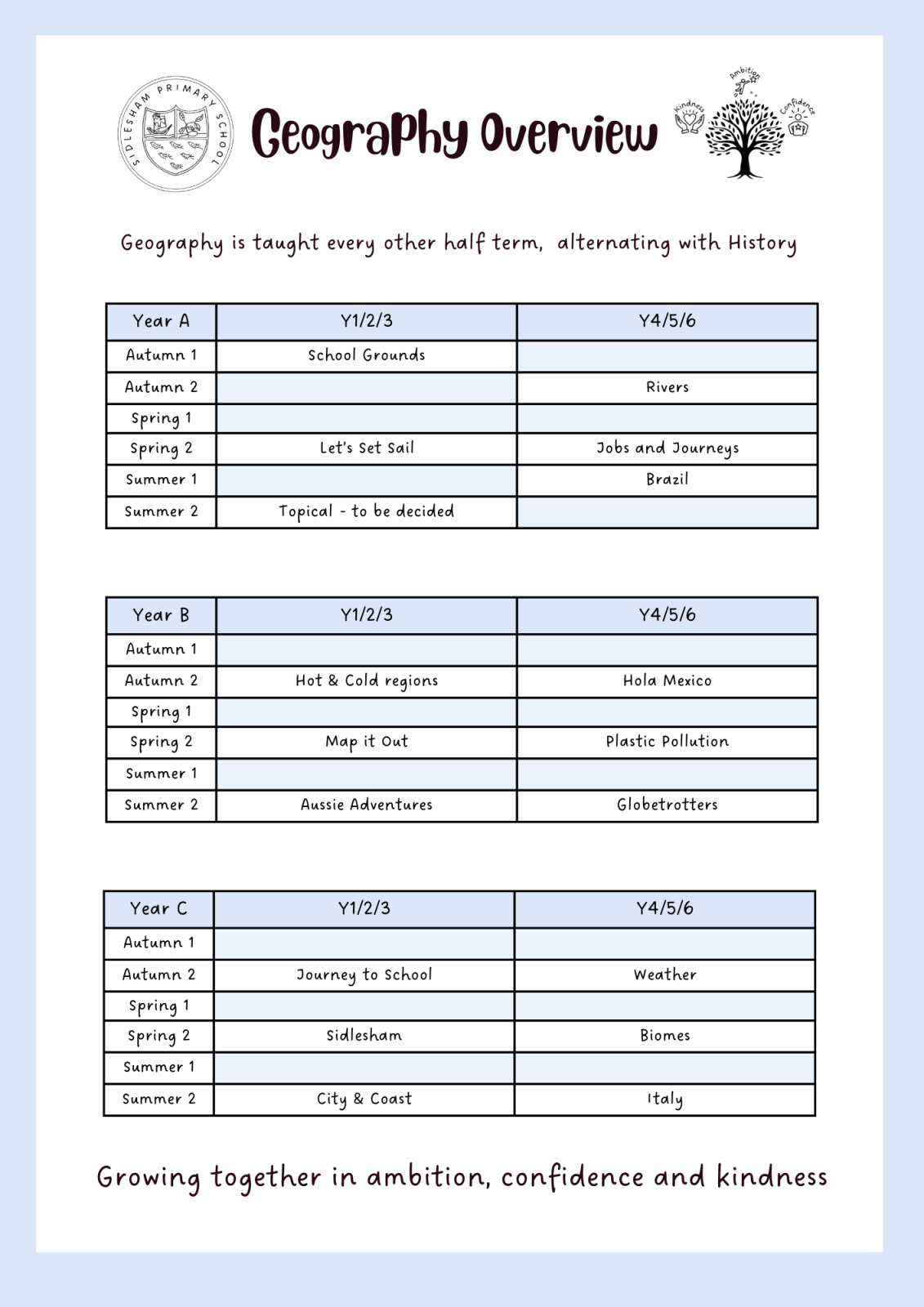Geography
Subject Overview

Intent
At Sidlesham Primary School, our Geography curriculum is designed to inspire children’s curiosity about the world—its people, places and natural features. We want pupils to develop a strong sense of where they belong, both locally and globally, and to understand the human and physical environments that shape life.
We aim to build children’s enquiry and map‑skills, solid locational knowledge, and the ability to ask questions about the world around them. From learning about biomes and continents, to comparing environments and exploring climate and population issues, geography helps pupils see connections between places, cultures and the environment. We also believe geography nurtures moral, social, spiritual and cultural awareness, helping children to grow as responsible and informed citizens.
Implementation
-
We follow the National Curriculum and teach geography over a rolling 3‑year cycle, so children in mixed‑age classes gradually build knowledge and skills.
-
Units include fieldwork, map work, data collection, interpreting aerial photos, and studying both human and physical geography.
-
Each unit is planned with a progression document and a knowledge organiser to highlight key vocabulary, facts and skills.
-
In Key Stage 1, children start locally—studying the school, the village, weather, and simple mapping—then gradually explore further across the UK and beyond.
-
In Key Stage 2, pupils deepen their understanding with more complex locational and comparative studies, global features, and more advanced fieldwork techniques.
-
Regular use of outside learning, local community, and practical enquiry helps bring geography to life.
Impact
By the time children leave Sidlesham, they will:
-
Show genuine curiosity and understanding about their local area, the UK and the wider world.
-
Be confident with locational and place knowledge, able to name and compare human and physical features.
-
Use maps, diagrams, data and fieldwork skills competently to investigate geographical questions.
-
Think critically, reflect on different viewpoints, and communicate their ideas clearly.
We assess pupils through summative tasks at the end of each unit and ongoing assessments matched to our progression document. We identify children meeting or exceeding age‑related expectations, and support those who need extra help.
Geography Knowledge Organisers






